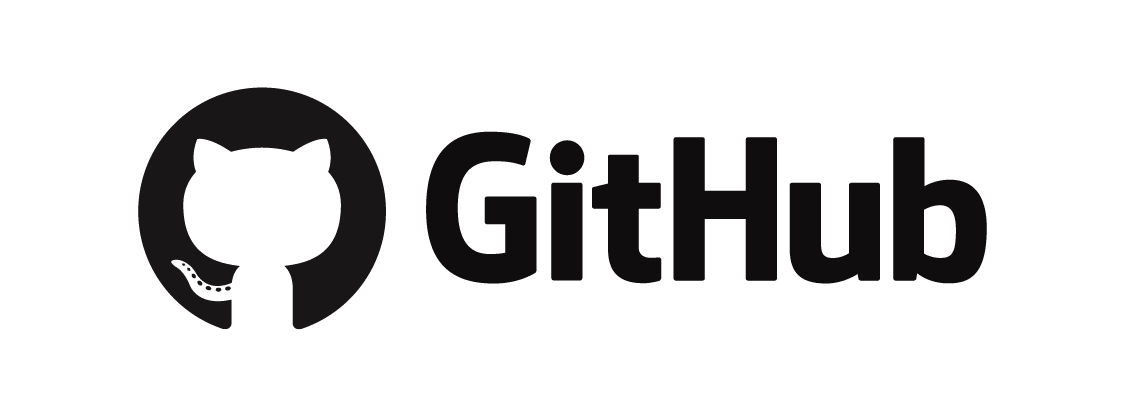
1. TensorFlow
-->Description: An open-source machine learning framework developed by Google for various applications, including deep learning.
-->[GitHub Repository](https://github.com/tensorflow/tensorflow)
#TensorFlow #MachineLearning #DeepLearning
2. React
-->Description: A JavaScript library for building user interfaces, developed by Facebook.
-->[GitHub Repository](https://github.com/facebook/react)
#React #JavaScript #UI
3. Vue.js
-->Description: A progressive JavaScript framework for building user interfaces.
-->[GitHub Repository](https://github.com/vuejs/vue)
#VueJS #JavaScript #UI
4. Node.js
-->Description: An open-source, cross-platform JavaScript runtime environment that executes JavaScript code outside of a web browser.
-->[GitHub Repository](https://github.com/nodejs/node)
#NodeJS #JavaScript #Runtime
5. Docker
-->Description: An open platform for developing, shipping, and running applications in containers.
-->[GitHub Repository](https://github.com/docker/docker-ce)
#Docker #Containerization #DevOps
6. Python
-->Description: The official Python programming language repository.
-->[GitHub Repository](https://github.com/python/cpython)
#Python #Programming #Language
7. VSCode (Visual Studio Code)
-->Description: A highly extensible, open-source code editor developed by Microsoft.
-->[GitHub Repository](https://github.com/microsoft/vscode)
#VSCode #CodeEditor #Development
8. Kubernetes
-->Description: An open-source container orchestration platform for automating application deployment, scaling, and management.
-->[GitHub Repository](https://github.com/kubernetes/kubernetes)
#Kubernetes #ContainerOrchestration #DevOps
9. Atom
-->Description: A hackable text editor for the 21st century.
-->[GitHub Repository](https://github.com/atom/atom)
#Atom #TextEditor #Development
10. Electron
-->Description: Build cross-platform desktop applications with JavaScript, HTML, and CSS.
-->[GitHub Repository](https://github.com/electron/electron)
#Electron #CrossPlatform #DesktopApps
11. PyTorch
-->Description: An open-source machine learning framework that accelerates the path from research prototyping to production deployment.
-->[GitHub Repository](https://github.com/pytorch/pytorch)
#PyTorch #MachineLearning #DeepLearning
12. Nginx
-->Description: An open-source web server and reverse proxy server.
-->[GitHub Repository](https://github.com/nginx/nginx)
#Nginx #WebServer #ReverseProxy
13. Go (Golang)
-->Description: The official Go programming language repository.
-->[GitHub Repository](https://github.com/golang/go)
#GoLang #Programming #Language
14. Bootstrap
-->Description: The most popular HTML, CSS, and JavaScript framework for building responsive and mobile-first web projects.
-->[GitHub Repository](https://github.com/twbs/bootstrap)
#Bootstrap #WebDevelopment #ResponsiveDesign
15. Pandas
-->Description: A Python library for data manipulation and analysis.
-->[GitHub Repository](https://github.com/pandas-dev/pandas)
#Pandas #DataAnalysis #Python
16. Ruby on Rails
-->Description: The Ruby on Rails framework for building web applications.
-->[GitHub Repository](https://github.com/rails/rails)
#Rails #RubyOnRails #WebDevelopment
17. Atom (core)
-->Description: The core of the Atom hackable text editor.
-->[GitHub Repository](https://github.com/atom/atom)
#AtomCore #TextEditor #Development
18. Flutter
-->Description: Google's UI toolkit for building natively compiled applications for mobile, web, and desktop from a single codebase.
-->[GitHub Repository](https://github.com/flutter/flutter)
#Flutter #UIToolkit #MobileDevelopment
19. Ruby
-->Description: The official Ruby programming language repository.
-->[GitHub Repository](https://github.com/ruby/ruby)
#Ruby #Programming #Language
20. Homebrew
-->Description: The missing package manager for macOS.
-->[GitHub Repository](https://github.com/Homebrew/brew)
#Homebrew #macOS #PackageManager
21. Laravel
-->Description: A PHP web application framework with expressive, elegant syntax.
-->[GitHub Repository](https://github.com/laravel/laravel)
#Laravel #PHP #WebDevelopment
22. CPython
-->Description: The default, most widely used implementation of the Python programming language.
-->[GitHub Repository](https://github.com/python/cpython)
#CPython #Python #Programming
23. TensorFlow Models
-->Description: Models and examples built with TensorFlow.
-->[GitHub Repository](https://github.com/tensorflow/models)
#TensorFlowModels #MachineLearning #DeepLearning
24. Git
-->Description: The fast, scalable, distributed version control system.
-->[GitHub Repository](https://github.com/git/git)
#Git #VersionControl #Development
25. Golang (Go)
-->Description: The Go programming language repository.
-->[GitHub Repository](https://github.com/golang/go)
#Go #GoLang #Programming
26. Spring Boot
-->Description: A framework for building production-ready applications.
-->[GitHub Repository](https://github.com/spring-projects/spring-boot)
#SpringBoot #Java #ApplicationDevelopment
27. Angular
-->Description: A platform for building mobile and desktop web applications.
-->[GitHub Repository](https://github.com/angular/angular)
#Angular #WebDevelopment #JavaScript
28. Yii2
-->Description: The Yii PHP framework version 2.
-->[GitHub Repository](https://github.com/yiisoft/yii2)
#Yii2 #PHP #WebDevelopment
29. FreeCodeCamp
-->Description: A free code camp curriculum and a nonprofit that helps people learn to code.
-->[GitHub Repository](https://github.com/freeCodeCamp/freeCodeCamp)
#FreeCodeCamp #LearnToCode #WebDevelopment
30. D3.js
-->Description: A JavaScript library for creating data-driven documents.
-->[GitHub Repository](https://github.com/d3/d3
)
#D3js #DataVisualization #JavaScript
31. Electron (electron/electron)
-->Description: Build cross-platform desktop applications with JavaScript, HTML, and CSS.
-->[GitHub Repository](https://github.com/electron/electron)
#Electron #CrossPlatform #DesktopApps
32. Bootstrap (twbs/bootstrap)
-->Description: The most popular HTML, CSS, and JavaScript framework for building responsive and mobile-first web projects.
-->[GitHub Repository](https://github.com/twbs/bootstrap)
#Bootstrap #WebDevelopment #ResponsiveDesign
33. Pandas (pandas-dev/pandas)
-->Description: A Python library for data manipulation and analysis.
-->[GitHub Repository](https://github.com/pandas-dev/pandas)
#Pandas #DataAnalysis #Python
34. Ruby on Rails (rails/rails)
-->Description: The Ruby on Rails framework for building web applications.
-->[GitHub Repository](https://github.com/rails/rails)
#Rails #RubyOnRails #WebDevelopment
35. Flutter (flutter/flutter)
-->Description: Google's UI toolkit for building natively compiled applications for mobile, web, and desktop from a single codebase.
-->[GitHub Repository](https://github.com/flutter/flutter)
#Flutter #UIToolkit #MobileDevelopment
36. Laravel (laravel/laravel)
-->Description: A PHP web application framework with expressive, elegant syntax.
-->[GitHub Repository](https://github.com/laravel/laravel)
#Laravel #PHP #WebDevelopment
37. Angular (angular/angular)
-->Description: A platform for building mobile and desktop web applications.
-->[GitHub Repository](https://github.com/angular/angular)
#Angular #WebDevelopment #JavaScript
38. Linux (torvalds/linux)
-->Description: The official Linux kernel repository.
-->[GitHub Repository](https://github.com/torvalds/linux)
#Linux #Kernel #OperatingSystem
39. D3.js (d3/d3)
-->Description: A JavaScript library for creating data-driven documents.
-->[GitHub Repository](https://github.com/d3/d3)
#D3js #DataVisualization #JavaScript
40. Ansible (ansible/ansible)
-->Description: A simple, agentless IT automation platform.
-->[GitHub Repository](https://github.com/ansible/ansible)
#Ansible #Automation #DevOps
41. TensorFlow (tensorflow/tensorflow)
-->Description: An open-source machine learning framework developed by Google for various applications, including deep learning.
-->[GitHub Repository](https://github.com/tensorflow/tensorflow)
#TensorFlow #MachineLearning #DeepLearning
42. React (facebook/react)
-->Description: A JavaScript library for building user interfaces, developed by Facebook.
-->[GitHub Repository](https://github.com/facebook/react)
#React #JavaScript #UI
43. Vue.js (vuejs/vue)
-->Description: A progressive JavaScript framework for building user interfaces.
-->[GitHub Repository](https://github.com/vuejs/vue)
#VueJS #JavaScript #UI
44. Node.js (nodejs/node)
-->Description: An open-source, cross-platform JavaScript runtime environment that executes JavaScript code outside of a web browser.
-->[GitHub Repository](https://github.com/nodejs/node)
#NodeJS #JavaScript #Runtime
45. Docker (docker/docker-ce)
-->Description: An open platform for developing, shipping, and running applications in containers.
-->[GitHub Repository](https://github.com/docker/docker-ce)
#Docker #Containerization #DevOps
46. Python (python/cpython)
-->Description: The official Python programming language repository.
-->[GitHub Repository](https://github.com/python/cpython)
#Python #Programming #Language
47. VSCode (Visual Studio Code) (microsoft/vscode)
-->Description: A highly extensible, open-source code editor developed by Microsoft.
-->[GitHub Repository](https://github.com/microsoft/vscode)
#VSCode #CodeEditor #Development
48. Kubernetes (kubernetes/kubernetes)
-->Description: An open-source container orchestration platform for automating application deployment, scaling, and management.
-->[GitHub Repository](https://github.com/kubernetes/kubernetes)
#Kubernetes #ContainerOrchestration #DevOps
49. Atom (atom/atom)
-->Description: A hackable text editor for the 21st century.
-->[GitHub Repository](https://github.com/atom/atom)
#Atom #TextEditor #Development
50. Electron (electron/electron)
-->Description: Build cross-platform desktop applications with JavaScript, HTML, and CSS.
-->[GitHub Repository](https://github.com/electron/electron)
#Electron #CrossPlatform #DesktopApps


